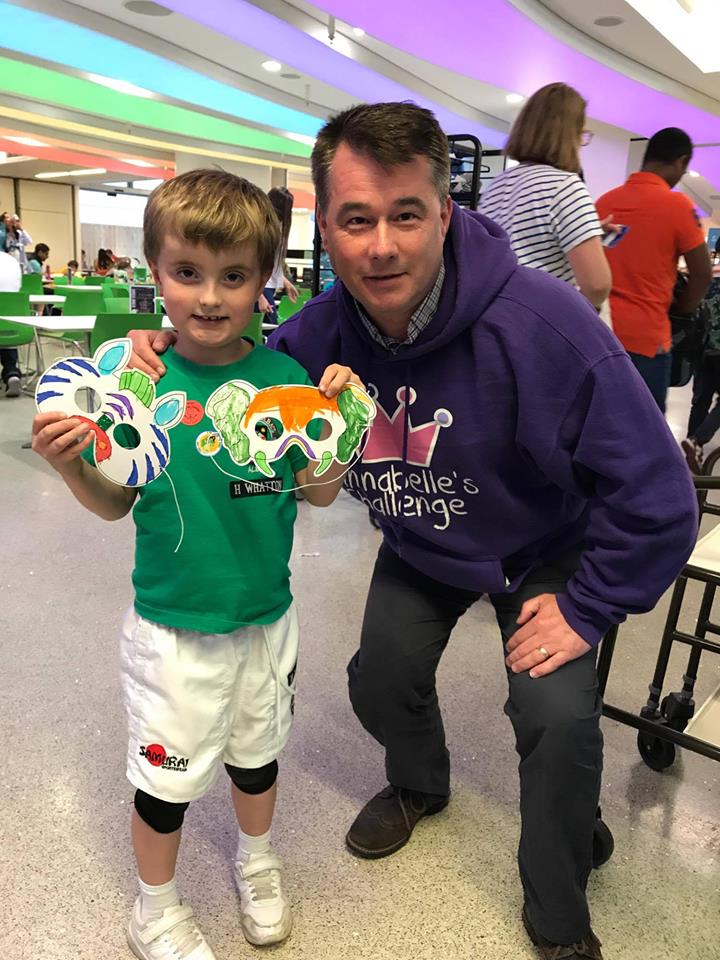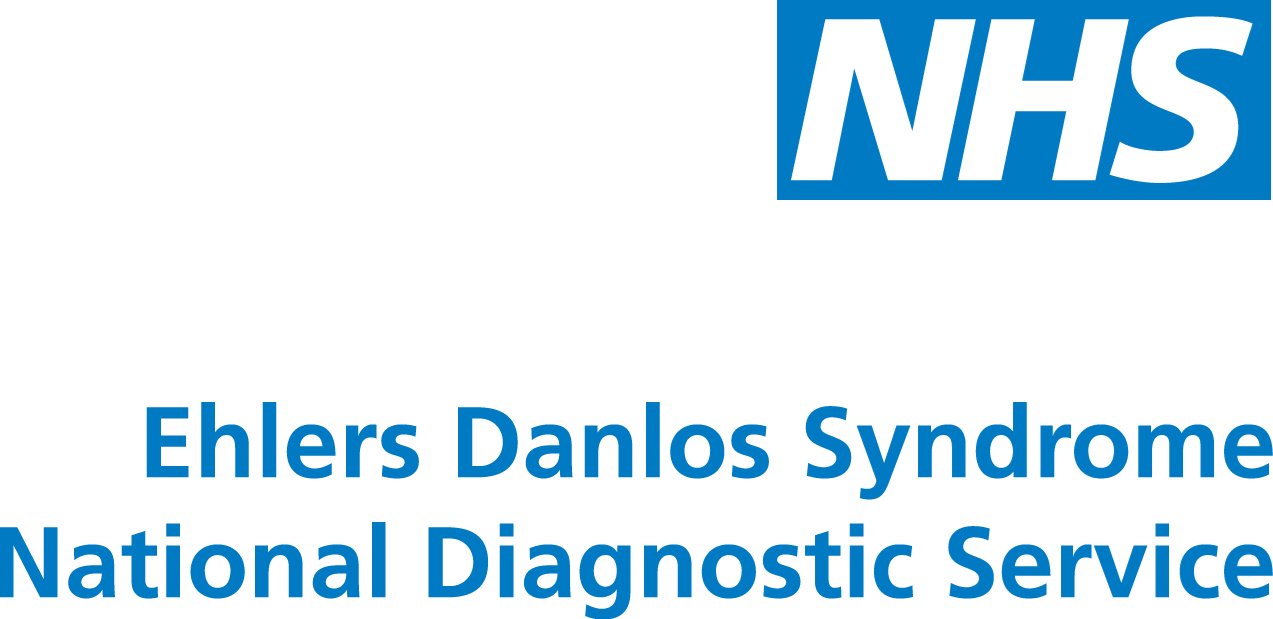Talking to your child about vascular EDS
When is the right time?
Most parents who have a child diagnosed with a genetic condition will think about if, how and when to share this information with their child.
There is no right or wrong answer for how and when information about vascular EDS should be shared with others. Different families will have different approaches and the decisions they make will depend on their own personal circumstances. It can be helpful to consider a range of factors which we hope will be useful for parents who are considering whether, and how, to disclose genetic information to their child.
As adults our instinct is often to feel that we are protecting children by delaying or not sharing information. However, research has shown that children wish to have the opportunity to discuss information as soon as possible as they often have an awareness that information is being kept from them, which in itself causes increased anxiety.
There are two slightly different scenarios around talking to your child about a genetic condition. You may have to talk to your child about vascular EDS and how it affects them. Or you may need to discuss with your child that they have a chance of inheriting vascular EDS. However, the principles used are the same in both situations.
It is usually better that children hear this sort of information from someone they know and trust rather than finding out by chance or other means. Discovering that they are affected with or at risk of vascular EDS in adulthood may result in needing to completely rethink their identity, life expectations and aspirations. There is also a risk of resentment over withheld information which may damage relationships and reduce support available for that individual at a difficult time.
Should I tell my child?
Parents typically face a dilemma in deciding whether or not to disclose a genetic diagnosis to their child.On one hand it can be argued that parents want to protect their child from harm, stigma or undue stress that may be caused by their knowledge of having a vascular EDS.
On the other hand many families feel it is important to be open and be able to provide their child with information that may be relevant for future decisions, such as schooling or having their own children.
This can result in a conflict of feelings around a child’s right to know information relevant to them but also not wishing to cause undue distress if they are currently doing well.
Genetic information can be very complex and difficult to understand. Some parents feel that it would do more harm than good to tell their child about a genetic condition, as they may not feel confident enough about their own level of understanding to accurately pass this information on.
If a child is experiencing difficulties at school or with their behavior or emotions, informing them of the vascular EDS diagnosis can be a positive step in helping the child understand why they may be struggling when compared to their friends. Children may find relief from having this information as it allows them to understand that any difficulties they are feeling are not their fault and they can make sense of their own situation better.
If a child does not have any noticeable difficulties relating to their vascular EDS diagnosis parents may not feel compelled to tell their child about it. It is important to consider that they may still appreciate being told rather than find out by chance at a later date.
Studies have shown that in families where a child did find out this information at a later date there is often resentment and disappointment at not being told. It is also important to remember a child may have unaffected siblings who may also have similar feelings - more information may help them too.
Previous research on family communication about inherited genetic disorders has found parents generally feel a responsibility to tell their children and provide them with adequate information about their condition. Many parents feel that promoting openness and trust by communicating as a family resulted in more support for each other. One parent from this study said:
“I always felt that I was 100% going to tell my child because they’re his chromosomes, its his body. Who am I to know something about him like that and not share that information with him?”
Helping families talk about vascular EDS by Claire Green, Genetic Counsellor, EDS Service.
When and how to tell your child
Deciding when to talk to your child can be difficult. When they are still young their understanding may be more limited but they may be more accepting. Once they are older they may have better understanding but may be upset to discover that this information was kept from them up until this point.
Some people may say to wait until the child asks questions but unless they know of a genetic condition in a family this is unlikely to be a question a child will ask about spontaneously. Some children who are having difficulties in particular areas such as learning may ask why they find things more difficult than their peers. It may be appropriate at this stage to begin a discussion about their vascular EDS diagnosis and be guided by how much information you give by the questions the child asks.
Once you have decided when to talk to your child the next challenge is how to do this. Genetics is a complex topic and many people will find the information confusing. You may feel under added pressure as you want to try to ensure that the child does not feel unduly distressed by this information. The information must be tailored to the child's current level of understanding. Go at the child's pace using words they are able to understand. Providing small amounts of information gradually is likely to help children understand and cope best.
Encourage the child to ask questions and answer as truthfully as possible. Don’t be afraid to say you don’t know if you are not able to answer specific questions. Check on the question being asked so that you can find out what your child actually wants to know.
It is helpful to tell your child that it is ok to talk to you about this condition any time they want to. By saying this to them you are giving them permission and saying that this is not a taboo subject. Studies have found that by the age of eight years children learn not to ask difficult questions unless their parents give them permission as they fear causing upset.
Communication tips
- Children and young people tend to prefer informal discussion often while doing other things together such as driving, washing up or cooking.
- Check their understanding because children worry about upsetting their parents and so may not always feel they can ask.
- Talking about a genetic condition is an ongoing discussion rather than a one-off conversation, expect to need to give information more than once.
- Discuss information young people may see on the internet or in newspapers or on television. Encourage them to talk to you about anything they read that they are worried about.
- Give them permission to talk about emotions - give them reassurance that they are not alone.
- Being with peers who may be in a similar situation, for example cousins, might be helpful.
Most children are quite pragmatic in response to risk in families affected by vascular EDS. Children and young people are often focused on developing friendships, school and their personal interests. To them future health concerns seem far in the future and so they do not dwell on these - unlike adults, who often dwell on how their child will react to this information.
Factors that can help parents to decide to talk to their children
- Younger children do not have the experience to recognise and anticipate the fuller implications of a genetic condition so there is a gradual realisation, and they are do not remember a time when they did not know this information.
- Parents will often say that talking was a relief for parents and ultimately easier than keeping the secret.
- Parents can be the role-models for young people, giving them insight into how to cope with any risk.
- Recognising that siblings may all have different needs, trying to find out what each understands at different times in their development.
- Belief in a child’s right to know.
- Support of other family members, friends and health professionals.
- Attendance at support groups can give a reason for regular discussion with children and young people with parents, talking about where they were going and why.
The information below is a summary from a research study of the benefits and drawbacks of talking to your children about genetic conditions and risk. We recommend trying to take naturally occurring opportunities to talk to your child where possible.
Benefits
- It brings family members closer.
- Can lead to additional support for children.
- Gives insight and helps children understand why parents may be anxious or upset and understand that it is no-ones fault.
- Provides confidence for the child to talk to close friends and have this additional support.
- Helps children and young people feel valued and included by knowing secrets are not being kept from them.
- Sharing accurate information helps understanding which promotes coping strategies in children and young people.
- Reduces the risks of the child seeking information that may be inaccurate or not specific to them from other sources.
Drawbacks
- It can be emotionally difficult for parents dealing with sharing this information and subsequent questions.
- Children and young people can remind you about the genetic condition at a time when you do not want to be reminded.
- Questions can arise at inopportune moments-explain when it is appropriate to discuss it.
- Wanting to talk to peers but networks may be limited.
- Can affect schoolwork, but usually only for a short time (equally so can worrying about what is happening in the family if there is secrecy).
References: Nottingham Regional Clinical Genetics Service. Ref: 2198/v2/0118/AR.











